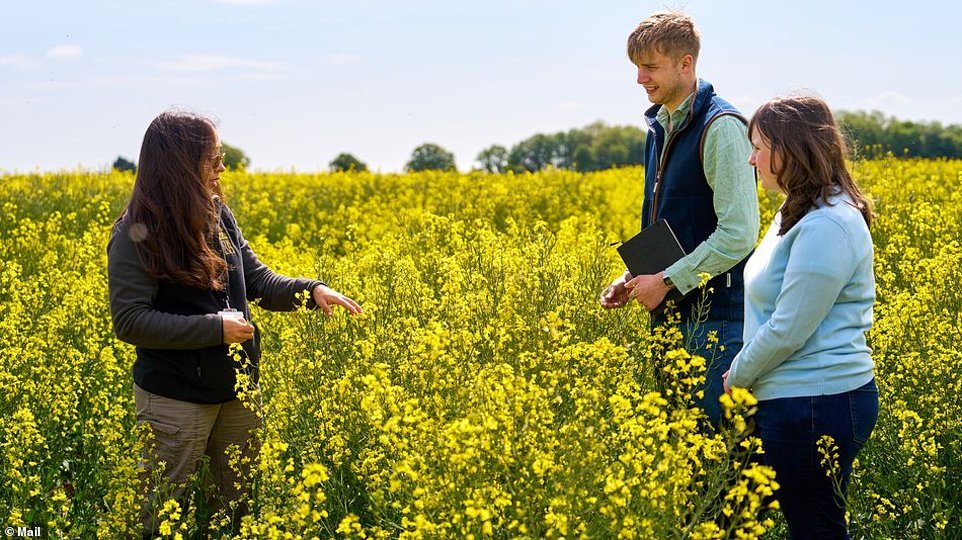Advertisement

Overview
From the King to Jeremy Clarkson’s co-star, the Royal Agricultural University (RAU) has friends in high places. King Charles is the latest in an unbroken line of sovereigns going back across the full 180-year history of the RAU to accept its patronage. Meanwhile, Kaleb Cooper, the spin-out star of the Clarkson’s Farm television show, is behind two £3,000-a-year scholarships for students studying agriculture who come from a non-farming background, like Cooper himself. The tie-up shows the first agricultural college in the English-speaking world is able to move with the times. It is seeking to make itself a university of choice for students from diverse and under-represented backgrounds, increasing the number of state-educated recruits and the proportion from the 40% of postcodes considered to be the most deprived – all a far cry from the days when it recruited more privately educated students than even Oxford and Cambridge. The academic offering is built around eight core degrees – in agriculture, agricultural business management, bloodstock and equine performance management, business management, environment and sustainability, equine science and business, real estate, and rural land management – plus several complementary foundation degrees, foundation years, top-up courses and professional placement years. The university will be hoping that a 25% fall in admissions in September 2024 was just a blip.
Paying the bills
Bursary support is broadly divided into three levels, with £1,000 to £4,500 a year on offer. Students from homes with annual income of £25,000 or less get a £1,000 bursary; those who are from homes in the 40% of postcodes considered to be the most deprived with an annual household income of up to £42,875 get £3,500 a year, which can be topped up to £4,500 if household income is £25,000 or less. Care leavers qualify for a £3,500 bursary. Bursaries are complemented by an extensive range of scholarships and externally funded awards, such as the Kaleb Cooper agriculture bursary, see Overview above. Some are for the new intake, others for continuing students in their later years of study. The next generation scholarship supports ethnic minority students who can demonstrate a passion for their subject with up to £6,000 a year awarded. Sports bursaries are also available for elite athletes worth up to £4,000 a year. There are 270 places in RAU accommodation. The limited number of self-catered rooms cost from £7,035 on a 35-week let, with half-board (breakfast and dinner) catered accommodation priced from £7,385 to £9,450 during the 35 weeks of term time.
What’s new?
A new Land Laboratory Teaching Centre will be operational in time for September 2025’s student intake to train students in climate-smart, resilient agriculture and land management. At its heart is a combined ‘wet’ laboratory and IT-enabled learning environment, which will develop the farmers of tomorrow capable of meeting and adapting to the challenges presented by climate change, biodiversity and food security. The RAU is promising both an academic and a practical approach to these issues. ‘The new facilities will fully embrace agricultural disciplines as science but also as trades and professions to be proud of – demonstrating world leading techniques and practices,’ the university told us. The RAU’s old wooden laboratory block will now be demolished to create a ‘village green’ at the heart of the pretty Cirencester campus. A new degree in bloodstock and equine performance management will increase its equine course portfolio in September 2025.
Admissions, teaching and student support
RAU has big ambitions, aiming to be ‘the UK’s global university for sustainable farming and land management’, and it wants to broaden the social mix on campus while achieving this. At present, about one in five students get a place with a reduced contextual offer, a reflection of the extent to which the RAU is trying to diversify its intake. Contextual offers are eight Ucas tariff points – equivalent to one A-level grade – lower than a standard offer. Broad eligibility criteria include being a student from one of 17 link colleges around the UK (mostly land-based institutions with which the RAE wants even closer ties); living in a postcode among the 40% that send fewest people into higher education; being from a black, Asian or minority ethnic background; coming from a military family; or having been in care. The RAU’s numerous foundation years and foundation degrees offer an alternative admissions route for those with lower qualifications. All students (whether they come in with a contextual offer or not) have a personal tutor for advice and guidance, and access to a developing academic skills module in areas such as time management, academic writing and referencing, and critical thinking. Focusing on student support will be one way to help deliver on RAU’s aim to deliver an outstanding experience. However, with the university sitting as the bottom-ranked institution for student satisfaction in last year’s National Student Survey, there is a lot of work to be done. Mental health support can be accessed via drop-in or pre-booked session with mental health coordinators or well-being advisers. Students also have 24/7 support through Health Assured, RAU’s partner for its student assistance programme.

